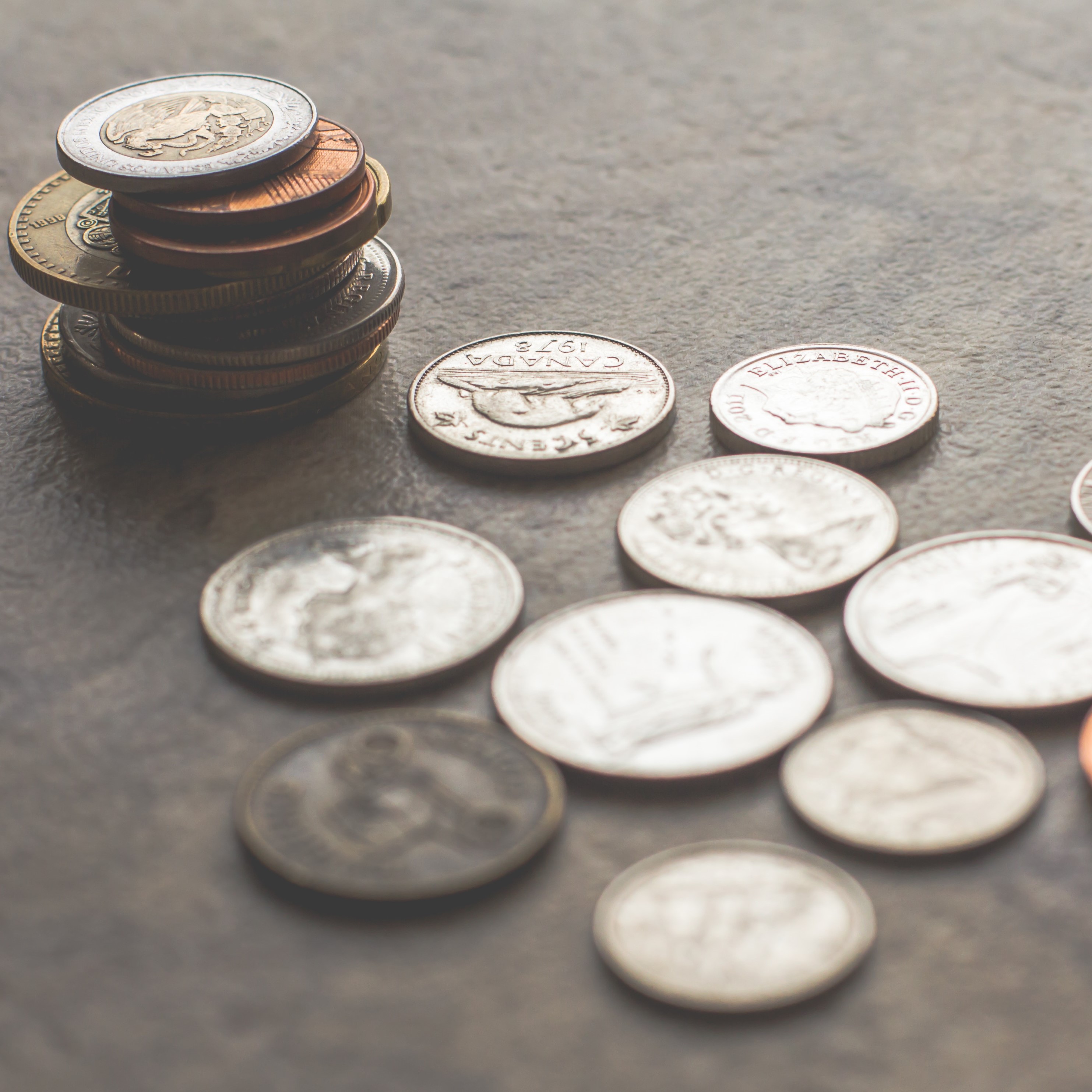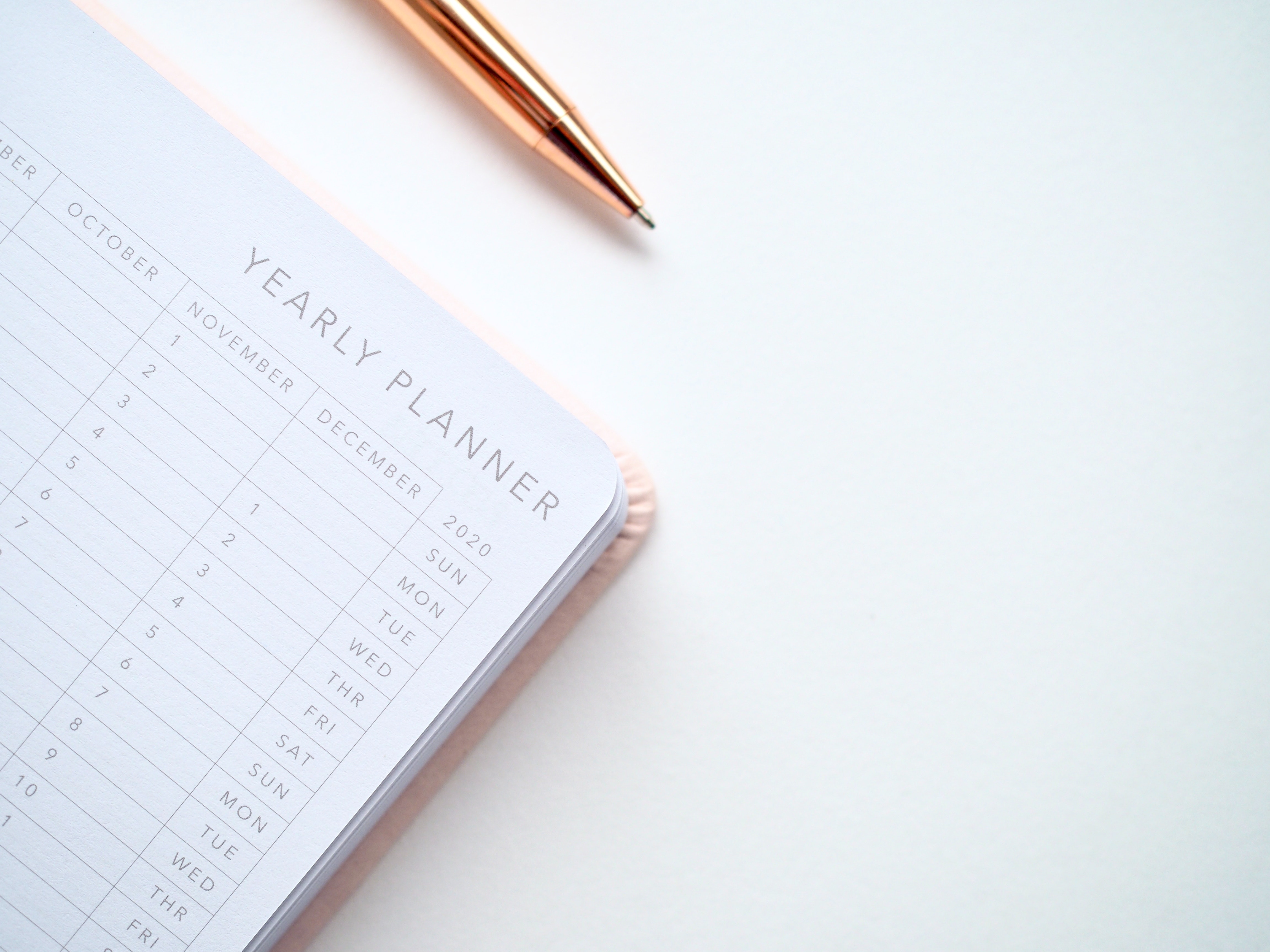Every day, something new comes out about COVID-19 and how it’s impacting our society. We’ve seen the financial markets experience a lot of volatility over the past couple of weeks (and it looks like there’s probably more to come), which can be scary and nerve-racking for a lot of people. It’s completely normal to feel that way given all of the news around these events and all of the different points of view we may hear. I’m sure that things will probably get scarier with more people testing positive for the coronavirus and more things shutting down to try and mitigate the spread.
Money
What Does Money Mean To You?
According to the Merriam-Webster dictionary, the definition of money is, “something generally accepted as a medium of exchange, a measure of value, or a means of payment…” However, money can mean a lot of different things to different people.
What My Parents Taught Me About Finances
3 minute read
Money Jars
Now that I think back on things, I realize that they taught me so much more about money than I ever thought about before. When I was in elementary school, my parents paid my sister and me $3 each per week for things like doing our chores, cleaning our rooms, etc. But, there was a stipulation for the money; both of us had 3 hazy-clear plastic jars with white screw on lids that we were supposed to put it into.
Each of the three jars had a different word written on them by my mom and a doodle that she drew characterizing the word on them: “Rainy Day” with a picture of a rain cloud and rain drops, “Spend” with a picture of a dollar, and “Church” with a picture of a church house (these may not have been the exact words and pictures but it was 20 years ago, alright).
I always wondered why my parents wanted me to have money to spend when it started storming outside (Hint: that’s not the point of the rainy-day jar).
Dividing your budget into these three broad categories can be an easy way to help yourself be successful at cash flow management. Last week I wrote that you may not need an extremely strict budget to be financially successful, but mentally accounting for your money like this could help.
Living On A Little
A few other things that my parents taught me through their actions rather than their words were that you don’t need the nicest things to live a loving and impactful life, an inexpensive house isn’t less of a “home”, cheap, used cars are reliable if you take care of them properly and do the exact same thing as brand-new ones, and not taking your lunch to work every day isn’t normal. Yes, these things were out of necessity rather than choice, but they are extremely valuable financial lessons that anyone can benefit from.
I don’t remember being intentional with my finances until I got to college, but I can’t help to believe that the things that my parents taught me about money at a young age led to my passion for helping others reach their goals through personal finances and to my desire for financial freedom. I feel extremely fortunate that my parents implemented the seemingly small, but also very impactful practice of money jars at such a young age and taught me the other personal finance lessons that I mentioned above.
They’ve probably done more for me financially than they’ve done for themselves over my life, but I hope (and believe) that one day I can give back more to them than they have been gracious enough to give to me. They’re never going to be in style, own a brand-new home or vehicle, or have anything expensive to show off for social media, but that doesn’t really matter because I truly believe that they’re two of the greatest people that I know and I think many others would agree.
What did your parents or guardians teach you about money?
What Are You Going To Do With Your Bonus And/Or Tax Refund?
3 minute read
Invest
Look, I’m a financial planner. My immediate thought is to pay yourself first and increase your savings and/or investments. If you’re not saving and investing a significant portion of your income already, then this can be a great way to get started. By now we all know how important investing for our future is, but most young professionals don’t take it as seriously as they should. Any extra money that you get from a bonus or tax refund could be a great opportunity to do something that your future self will thank you for.
Pay Down Debt
On the other hand, if you have high interest rate debt, then applying your extra cash to pay that down may be more beneficial. Using your money optimally is just a math game that depends on the interest rate on your debt and your expected rate of return of your investments. However, not everyone is motivated by getting the best rate of return possible for their money.
Some people really hate debt and would rather pay it down as quickly as possible, no matter whether it’s the most mathematically optimal decision or not. That’s a fine option as well, but we need to make sure that it makes sense within our overall financial plan.
Spend
I’m not telling you that you shouldn’t spend any of your tax refund or bonus. Everyone needs to be able to spend on things and experiences that they want and that make them happy, but you shouldn’t let doing so get in the way of reaching your financial goals.
This is why it’s so important to have your goals for what you want your money to accomplish for you explicitly stated. Otherwise, you’re likely to waste a lot of money (and a lot of progress towards your true goals) by spending on things that don’t really make you happy or provide you with much value because you’re trying to keep up with the Joneses.
Save For A Short-Term Goal
If you don’t have high interest rate debt and you save an adequate amount, then why not get started on saving for your summer vacation or plan a trip if you don’t have one already planned? I’m always going to value spending on travel and other experiences much more highly than spending on “stuff”, but if stuff is what makes you happy, and you’re in a good spot, then go ahead and buy that thing that you’ve really been wanting – within reason of course.
My Goal
My goal is to save/invest 50% of my bonus and tax refund, at least. Not only will this help me get a jump start on my annual savings goals, but it will also help to reduce lifestyle creep which can become a problem if spending increases over time without savings increasing as well.
The beginning of the year has seemed even busier for Amanda and me than the end of 2018 did, which has led to a little bit more spending than I would have liked. However, most of that spending has been on experiences that I’ve enjoyed, rather than things that I’d probably not care about in a couple of months, so I can’t be too upset. We still have a couple more weekends left that are booked, but I’m confident that I’ll be able to save at least half of my bonus and tax refund not only for long-term investing, but also for short-term goals such as our wedding and travel.
Update Often
3 minute read
Your financial life doesn’t change only once per year so you shouldn’t only pay attention to it when you’re setting your new year’s goals or when your financial planner tells you it’s time to update. A financial plan is a living, breathing, changing part of your life that requires consistent attention to fully develop and produce the results that you want it to. A good financial planner should keep in contact with you throughout the year to help ensure that you’re accomplishing the things that you need to so that you can reach your goals. If you don’t work with a financial planner, then it’s up to you to keep yourself accountable to revisit your personal finances frequently, make sure that you’re on track to meet your goals, and adjust as needed.
Be Proactive
So many things happen over the course of a year that, even though they could be huge life events, sometimes we don’t even consider how they could affect our financial lives or take the time to consider how they have affected us after a while – receiving a raise, buying a new home, having a child, etc. These things are all part of life, but we don’t always take the time to plan for how they will, or have, impacted our financial situation.
Being proactive about planning for life events that you know are going to happen, such as buying a house or having a child, can save you a lot of heartache in the long run and ensure that you’re on track to reach your goals. However, setting goals to save X amount of money for a down payment on a home and obtaining adequate life insurance coverage this year is likely to be ineffective if you don’t check in on your progress towards those goals until the end of the year. Tracking your progress and adjusting as needed on a consistent basis will lead to you being much more likely to achieve the things that you want to.
Life Happens
You never know what life’s going to throw at you next. Not only does revisiting your financial plan often allow you to plan for the long-term, but it also helps you plan to absorb short-term catastrophe as well. This week, many well-respected journalists at the Indy Star were laid off. I’m sure many of them never thought they’d be in this position and, unfortunately, I’m sure that many of them weren’t prepared to be unemployed.
At a larger level, the federal government has been shut down for over a month now, leaving government employees without paychecks. Regrettably, the statistics tell us that the vast majority of these workers weren’t prepared for not having a paycheck, let alone going without multiple. In 2018, the Federal Reserve Board issued a report that stated that 40% of Americans don’t have enough liquid cash to cover a $400 emergency. While this number is decreasing, it’s still far too high and shows us that many of these people who have lost their jobs and gone without paychecks likely didn’t have a plan in place for situations like this.
Although I don’t want to make examples of these gravely unfortunate situation, I hope that this shows why it’s so important to revisit your personal financial plan often. We can all say, “it won’t happen to me”, but the reality is that it very well could happen to anyone. What’s your excuse for not making sure that you’re taking care of yourself, your family, and your future self? Proper planning and evaluation of your personal finances on a consistent basis can not only help you to be prepared for catastrophes, but can also help you to leading a happy, successful, and prosperous financial life.
Money Well Spent
3 minute read
I have to admit, up until a couple of weeks ago I’ve been playing in the basketball shoes that I got before my senior year of high school basketball in the fall of 2010, probably around this time. That’s 8 years of playing basketball in the same shoes. Over 8 years, those shoes went through high school basketball, countless pick-up games in college, and pick-up basketball post-college as well.
I’ve been badgered by my friend, Jared (check out his new blog here), almost every time we’ve played together for the past 2 years to just get a new pair of shoes already. But I hate spending money on clothes and shoes. The shoes that I have get the job done so why get a new pair? Sure, they’re worn out and a little beat up (maybe on the edge of a lot worn out), but they still fit and don’t have any significant problems.
Last month, I finally had enough of my feet feeling like I ran a marathon barefoot on gravel for days after playing basketball in my trusty 2010 Nike Hyperdunks. Of course, I wasn’t going to go out and buy a pair of shoes for full price without doing some research. I’m particularly picky about the way that clothes and shoes fit.
I’m never going to be accused of being fashionable and I don’t really get much joy from having the newest stuff, but what I really, really do care about is comfort. If something isn’t comfortable to me, then I’m just not going to wear it. I don’t care how stylish it is or how cool people may think it is, if it’s not comfortable it’s not worth it to me.
Comfortable basketball shoes aren’t cheap. Luckily, I remembered that I still had a $25 Nike gift card from last Christmas that I hadn’t used.
After doing some research, I found that Nike had PG2s and Kyrie 4s on sale on their website. Both of these shoes have very good reviews and sound like something I’d like to wear when playing basketball. However, I couldn’t just buy them online without trying them on first. I’m weird like that. I have to know that they’re comfortable. I don’t want to go through the hassle of returning them and waiting to get another pair.
There was a problem though. In my quest to delay spending money on the shoes as long as possible I ended up waiting too long to go try them on and the pairs that that were for sale online sold out. So, I ended up trying on the latest version of the PGs and Kyries since they’re on the lower end of Nike basketball shoe pricing while maintaining very good reviews. I tried on the PG 2.5s and found them very comfortable, which is in-line with what I had read and with the reviews of many other professional basketball players who wear the shoes.
I tried on the Kyries and they felt like I was wearing moon boots.
I was torn. I found shoes that I liked, but I didn’t want to pay $110 (pre-tax) for them.
Here’s how I got them for 72% of the cost (Fair warning: Most people won’t have this option).
Remember the gift card from above? That was obviously where I had the most savings. Don’t throw those things away when they’ve been in your wallet forever – they may still have some value. Next, I found that college students receive a 10% discount on their first online Nike purchase. Thanks for being in college, Amanda! I also have the Ebates plugin installed on my browser which saved me an additional $1.65 – a small amount, but still savings. Add in taxes of $6.93 and I bought a $110 pre-tax pair of shoes for $79.28, including tax.
Even though I saved so much on the shoes, I still initially felt a little guilty spending the money. But, after playing in them a handful of times so far, it was so worth it. I forgot what it was like to wear comfortable basketball shoes that don’t leave your feet feeling like you ran on rocks the whole day before for multiple days afterwards.
This is something that I’ve written about before, and it’s something that I struggle with sometimes as well, but spending money is okay when you’ve planned for it and it doesn’t negatively impact your financial goals. Those who are dedicated towards saving and making their money work for them often have a hard time spending it on themselves, even when that’s what they’ve saved it for.
But, sometimes it’s worth it.






